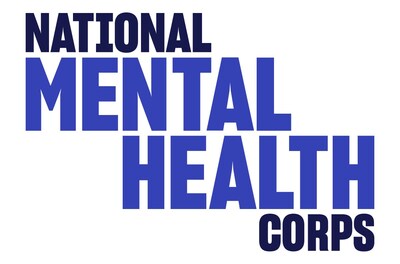NEWTOWN, Conn., Aug. 1, 2025 /PRNewswire/ — The future of the National Mental Health Corps (NMHC)— a leading pipeline into the mental health workforce—is now in jeopardy. In the midst of a growing mental health crisis, the loss of AmeriCorps funding for crisis call center placements—and the emerging threat to suicide prevention training support—marks a critical moment for the National Mental Health Corps and the vital infrastructure it helps uphold.
National Mental Health Corps has a long and impactful history, originating from a small nonprofit in Connecticut. Established in 2012 in the wake of the Sandy Hook School shooting, the organization recognized that communities impacted by trauma need prevention and early intervention programs to heal. NMHC responded by pioneering an innovative mental health workforce development program addressing the mental health crisis. Over the past decade, NMHC members have contributed nearly 500,000 hours of suicide prevention, crisis response, and culturally competent care to communities in 35 states.
988 AmeriCorps Placements Eliminated
AmeriCorps funding that supported NMHC AmeriCorps member placements at 988 Suicide & Crisis Lifeline centers will now end in August 2025. This loss of funding will have significant impacts on 988 centers across the country. Each NMHC member placed in a crisis center is more than an extra set of hands—they represent a fully trained crisis counselor helping manage hundreds of life saving interactions, leaving behind a tangible gap:
- Fewer individuals in distress supported per week
- Higher risk of burnout among remaining counselors
- Reduced access for underserved communities that rely on culturally and linguistically appropriate responders
“This loss of our AmeriCorps funding will deeply impact our clinical team as we’re going to lose the equivalent of 100 hours of care and support each week,” said Misha Harris, PsyD, Director of Service and Learning Programs at Crisis Text Line. “This will cause a strain on our resources to train and guide our volunteers, review high-risk conversations, and provide the oversight that ensures people in crisis get the help they deserve.”
Suicide Prevention Training Program Still Operating
While placements at 988 Suicide & Crisis Lifeline centers are ending, NMHC’s national suicide prevention training initiative remains active—for now. This program, which trains thousands of students, teachers, and community members in evidence-based interventions like Mental Health First Aid and QPR (Question, Persuade, Refer), is also experiencing significant funding threats.
If cuts continue:
- Communities will lose youth-focused suicide prevention efforts providing early education, peer support and intervention skills.
- Students on college campuses—where demand for mental health support continues to rise—will face diminished access to safety net services.
- Fewer trained professionals will enter the field, compounding a national workforce crisis—as demand for these roles continues to outpace supply.
“Our teams are still showing up – still equipping schools and communities with life-saving tools—but we are operating under a great deal of uncertainty,” said Celia Meyer, NMHC’s COO. “Without reliable support, these prevention efforts could disappear when they’re needed most.”
A Critical Workforce Pipeline Is Breaking
Over 160 million people in the U.S. lack adequate access to mental health care—a crisis driven in large part by a severe shortage of trained professionals. NMHC is working to change that by not just responding to today’s mental health needs, but actively building the workforce of tomorrow. Through hands-on service, crisis response certification, and professional supervision, NMHC members gain critical experience with 92% of members remaining in the field in long-term careers as licensed clinicians, social workers, and school counselors—helping to close the gap in care for years to come.
“Now is the time for collaboration. We urge communities, organizations, and leaders to come together to ensure that suicide prevention programs remain strong, sustainable, and available wherever they are needed most—and to invest in the workforce pipeline that will be essential to meeting both today’s crisis response needs and tomorrow’s broader mental health challenges,” said Tricia Harrity, NMHC’s CEO.
National Mental Health Corps’ mission: Leading the charge to solve the mental health workforce crisis. To learn more or support, visit www.nationalmentalhealthcorps.org and join the conversation on social media using #NMHC.
![]() View original content to download multimedia:https://www.prnewswire.com/news-releases/americorps-funding-cuts-eroding-the-mental-health-workforce-pipeline-302519936.html
View original content to download multimedia:https://www.prnewswire.com/news-releases/americorps-funding-cuts-eroding-the-mental-health-workforce-pipeline-302519936.html
SOURCE National Mental Health Corps


